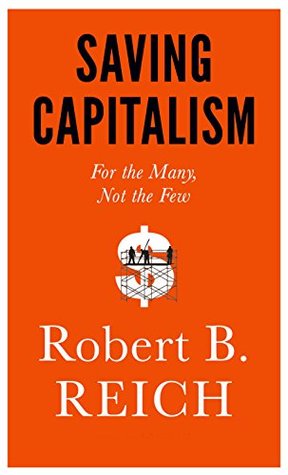More on this book
Community
Kindle Notes & Highlights
Read between
April 26 - May 11, 2023
a critically important phenomenon: the increasing concentration of political power in a corporate and financial elite that has been able to influence the rules by which the economy runs.
The problem is not the size of government but whom the government is for.
My conclusion is that the only way to reverse course is for the vast majority who now lack influence over the rules of the game to become organized and unified, in order to re-establish the countervailing power that was the key to widespread prosperity five decades ago.
Few ideas have more profoundly poisoned the minds of more people than the notion of a “free market” existing somewhere in the universe, into which government “intrudes.”
There can be no “free market” without government. The “free market” does not exist in the wilds beyond the reach of civilization. Competition in the wild is a contest for survival in which the largest and strongest typically win. Civilization, by contrast, is defined by rules; rules create markets, and governments generate the rules.
A market—any market—requires that government make and enforce the rules of the game. In most modern democracies, such rules emanate from legislatures, administrative agencies, and courts. Government doesn’t “intrude” on the “free market.” It creates the market.
Yet the interminable debate over whether the “free market” is better than “government” makes it impossible for us to examine who exercises this power, how they benefit from doing so, and whether such rules need to be altered so that more people benefit from them.
The “free market” is a myth that prevents us from examining these rule changes and asking whom they serve.
it is useful to see how political power shapes all of them and why market freedom cannot be understood apart from how such power is exercised, and by whom.
The invisible hand of the marketplace is connected to a wealthy and muscular arm.
Yet as a practical matter, freedom of speech is the freedom to be heard, and most citizens’ freedom to be heard is reduced when those who have the deepest pockets get the loudest voice.
In practice, therefore, the freedom of speech granted by the court to corporations would drown out the speech of regular people without those resources.


